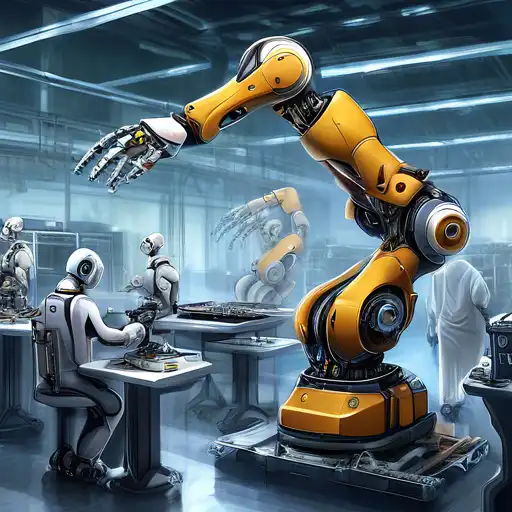The Revolutionary Impact of Robotics on Modern Manufacturing
In the realm of manufacturing, robotics has emerged as a transformative force, redefining efficiency, precision, and productivity. This technological evolution is not just about automating repetitive tasks but is a comprehensive overhaul of how products are designed, produced, and delivered. The integration of robotics into manufacturing processes has unlocked unprecedented levels of operational excellence, setting new benchmarks for industries worldwide.
Enhancing Efficiency and Productivity
Robotics in manufacturing has significantly enhanced efficiency and productivity. Automated robots can operate 24/7 without fatigue, performing tasks with consistent precision. This relentless operation capability ensures that production lines can maintain high output levels, reducing bottlenecks and maximizing throughput. Moreover, robotics has minimized human error, leading to higher quality products and reduced waste.
Cost Reduction and Scalability
One of the most compelling advantages of robotics is the potential for cost reduction. While the initial investment may be substantial, the long-term savings are undeniable. Robots reduce labor costs, decrease material waste, and lower the risk of workplace injuries. Additionally, robotic systems offer remarkable scalability, allowing manufacturers to easily adjust production levels in response to market demands without significant additional costs.
Innovation in Product Design
Robotics has also paved the way for innovation in product design. Advanced robotic systems, equipped with AI and machine learning, can handle complex designs that were previously impossible or too costly to manufacture. This capability enables manufacturers to explore new product possibilities, customize offerings, and respond more agilely to consumer trends and demands.
The Future of Manufacturing with Robotics
The future of manufacturing is inextricably linked with the advancement of robotics. As technology continues to evolve, we can expect even more sophisticated robotic systems that are capable of collaborative work (cobots), self-diagnosis, and autonomous decision-making. These developments promise to further enhance manufacturing efficiency, reduce costs, and foster innovation, solidifying robotics' role as a cornerstone of modern manufacturing.
For those interested in exploring how robotics can transform their manufacturing processes, check out our guide on the latest automation trends. Additionally, our article on innovative product design offers insights into how robotics is enabling new possibilities in manufacturing.
In conclusion, robotics is not just transforming manufacturing; it's revolutionizing it. By embracing this technology, manufacturers can achieve unparalleled efficiency, cost savings, and innovation, securing a competitive edge in the rapidly evolving industrial landscape.
